The career of Sushil Baveja, executive director, human resource, DCM Shriram, would have taken a completely different turn if he had not paid heed to his journalist friend. That is because, MBA graduate Baveja had his heart set on journalism. During his college days, heused to be involved in radio broadcasts and was a stringer for a couple of Delhi newspapers, including Hindustan Times and Patriot.
“A journalist friend of mine told me that while journalism may appear to be a glamorous profession from the outside, it isn’t as satisfying. He said, ‘If at all, you feel like writing, at any stage, nothing stops you’. That’s when I took up my first job in September, 1984. I still remember I received my offer letter on September 5 and my joining date was September 12, 1984.”
Baveja prides on remembering the joining and exit dates of every organisation he has been part of, six to be precise. Obviously thrilled and excited to receive the offer letter from Samtel Color, his first employer, he celebrated the occasion with a soft drink. He joined the Company as a management trainee in 1984. “I always aspired to join a growing company. Samtel Color used to be one in those times for young professionals. I initially joined the Black and White picture tube factory in Ghaziabad for three years. Then I moved to the colour picture tube project, for my second stint, which was a complete Greenfield project and a joint venture with Mitsubishi. There, I was involved in hiring 1400 people. I take a lot of pride in the fact that at that age, I could play a significant role in institutionalising the HR department there.”
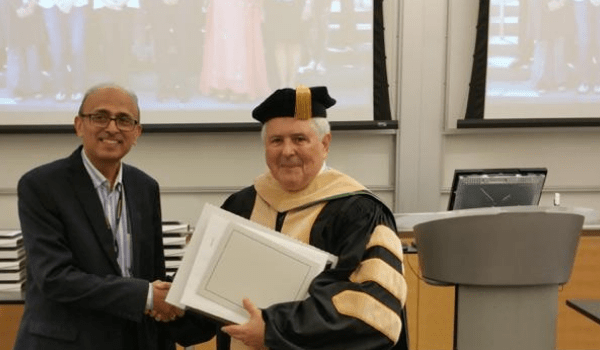
Working with a Japanese company, such as Mitsubishi, was quite enriching for Baveja. Their working style had quite an impact on him, but it was the ‘Quality Circles Initiative which brought him maximum recognition, within a year of joining Samtel. “The organisation focused a lot on small group activities, such as Quality Circles — small teams of people performing homogenous work, such as solving problems— at the grassroots level. It encouraged ownership and decision making at the basic level. I played a significant role in institutionalising the Quality Circle movement in Samtel. We were among the companies recognised in the country for this movement. I was selected by the Japanese Union of Scientists and Engineers to present a paper on Quality Circle in Tokyo, in 1985,” recollects Baveja. He was among the six Indians who were selected for the convention. Unfortunately, he could not travel at that time, but his paper was presented.
Baveja’s next stint was with Cadbury, where he moved as plant personnel manager, to fulfil his dream. He reveals that he could have had a long-time career at Samtel, but working in a reputed multinational company was always on his mind. Cadbury was looking for someone who could bring new prospects. It was a new plant and they wanted a new HR foundation. It was the dream company for Baveja, just as it would have been for anybody else. Although he moved from electronics to confectionaries, the kind of people he dealt with was quite similar. “Cadbury gave me a holistic experience, adding the element of learning and industrial relations,” says Baveja.
The experience that Baveja holds high up on his achievement ladder is that of dealing with the workers’ union, at the Cadbury factory. Negotiations, industry relations and dealing with authorities, all of it gave him a holistic experience, “It was my first brush with a union and I actually learnt how to deal with them. It involved a lot of external management, such as connecting with local district administration, labour authorities and others.”
“Cadbury gave me a holistic experience, adding the element of learning and industrial relations”
He facilitated many factory visits for unionised employees, and brought them to the Maruti Suzuki factory in Gurgaon To learn best practices at the shop-floor level. “Their interesting Japanese concepts were actually an eye opener for these workers. I also arranged some market visits for them, taking them around to some shops in Gwalior and Indore, to listen to customer complaints. We were producing Eclairs and Gems from the plant, and workers never believed the complaints that we received from the market at times. So I took a team to some of the outlets, which convinced them that we could improve,”Baveja Shares.
No wonder Baveja feels that real learning for HR professionals happens at the factory level, as there are a variety of experiences. Otherwise, one can’t relate to the grassroots level. Human resource professionals should have experience of HR and IR for a balanced perspective.
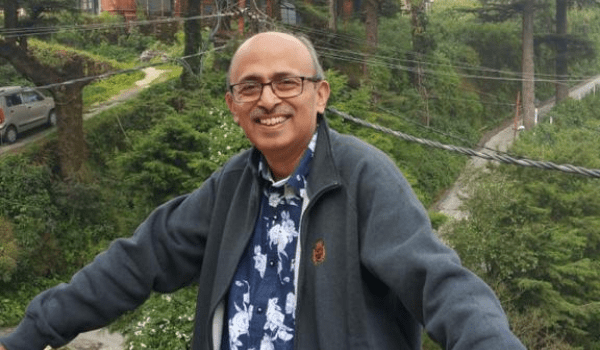
A family emergency made him quit Cadbury and join Dalmia Industries as senior manager, corporate HR. The stint, however, was short and lasted but one year. As Baveja rightly points out, after working in a multinational company, one gets a different experience and expects every organisation to match the same. “That unfortunately didn’t happen at Dalmia. However, even in that one year, I had a good experience of heading the HR department as a whole, being responsible for corporate, factory and sales HR as well.”
Baveja’s attraction towards multinationals led him to Gillette. There again, he served two stints. “I was at the factory outlet at Bhiwadi for two and a half years, and in the last six months, I was moved to the Gillette-Parker joint venture.”
The Company got into a JV with Luxor Company for making Parker pens. Gillette’s presence in India wasn’t in the personal grooming space alone. It had presence in several segments, such as with Parker, Duracell, Oral-B and others. I was primarily in the shaving segment. The good thing about Gillette is that even when one is at the factory, one is involved in the corporate segments,” elaborates Baveja.
Alcatel India was Baveja’s next stop, where he worked for six years. While the experience was great, the Company did face a few challenges with its young workforce. “The software centre part of it had a very young, ambitious and aspiring workforce, much like the millennials today. We faced a big problem of high attrition rate and retention was a huge challenge. On the other side, we had a highly stable workforce making telephone exchanges, comprising a very different set of people. We had to manage a diverse mix there.”
“DCM Shriram is a great blend of rationale and emotions, tradition and modernity, touch and tech. The best thing is that the senior leadership here is sent abroad to participate in advanced management programmes. I went to the University of Michigan in 2016 and participated in the Advanced Human Resource Executive Programme there. That’s the kind of investment the Company makes hereto keep one motivated”
To sort the high attrition issue at Alcatel, Baveja and his team did two things— compensation positioning and career pathing. “First, one has to be in the top quota to attract top talent. We were competing with players, such as Siemens, Lucent, Nokia and others. Therefore, we had to ensure good compensation. Second, people have big aspirations in terms of career pathing. We worked to create career ladders for them,” Baveja Explains.
Many workshops were conducted to explain to the employees what they could look forward to if they stayed at Alcatel. They were given access to the best learning tools at a global level. Rotational assignments were devised for the employees to enable them to get some international exposure, and help them work on some global projects for new skills and capabilities.
Surprisingly, for someone who always wanted to be part of a multinational company, Baveja has had the longest stint at DCM Shriram. He has been with the Company for close to two decades and that’s because of the emotional connect. Baveja says that when one joins a company, there is a rationale in one’s mind. Here, at DCM Shriram, all that changes to emotional considerations after a while. “This organisation is a great blend of rationale and emotions, tradition and modernity, touch and tech. The best thing is that the senior leadership here is sent abroad to participate in advanced management programmes. I went to the University of Michigan in 2016 and participated in the Advanced Human Resource Executive Programme there. That’s the kind of investment the Company makes hereto keep one motivated,” Baveja points out.

At DCM Shriram, Baveja indulged in a lot of talent and leadership development initiatives. In 2007-08, the organisation introduced development centres for high-potential employees who could be groomed. They were mapped to critical roles from the succession-planning perspective. Thirteen to fourteen years on, the journey still continues. “We also undertook the process of developing a senior level of leadership, such as an assessment. We were all given feedback in terms of our strengths and improvement areas.”
Baveja mentions the alumni network of DCM Shriram. He believes, “Anybody who has worked with the organisation continues to be a brand ambassador. We stay in touch with them on a regular basis and organise alumni connects in Delhi and invite people who have worked with us before.”
Apart from that, there is an event called Parichay, which is attended by management trainees and their parents. “It is an annual event for the new management trainees and their families, on completion of the intensive induction process. We talk about the company not only to the trainees but their families as well, to give them a sense of what the organisation is. We also ensure that the first salary check is handed over to the parents and not the employees, because we feel youngsters owe what they have to their parents. It is our way of recognising that the success of any child is due to the family. It’s a souvenir check that we handover, the actual salary goes into the account. This is how this organisation build emotional connect,” Braveja asserts.
Moving forward, the HR agenda will align with the business goals of the organisation, but Baveja has an agenda of his own—to drive growth, achieve cost optimisation, collaborate with the business to create a culture of thinkin out-of-the-box, nurture a frugal mindset and respond with agility.
Value our content... contribute towards our growth. Even a small contribution a month would be of great help for us.
Since eight years, we have been serving the industry through daily news and stories. Our content is free for all and we plan to keep it that way.
Support HRKatha. Pay Here (All it takes is a minute)







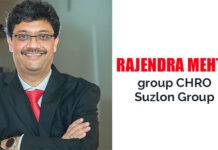

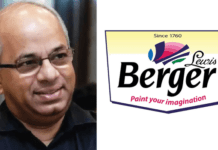
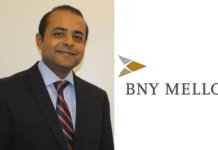













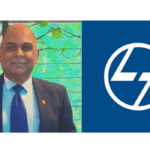












Journalism may be a star profession elsewhere but not in odisha where more dirt, corruption emanated from this profession to system as journalists are paid less than a mgnregs labour, so long one had other options of livelihood it can be pursued, but depending on its earning to run livelihood is a misnomer.
Great journey of a simple & sincere person. I am in touch with him for last ten years. He is polite and good listener. He will always respond to each email and encourages. He started number of great initiatives in DCM Shriram as part of HR department and touched many hearts. I wish him all the best for His re-tyred life !
As someone who has had the pleasure of being engaged by DCM Shriram to work with their most senior leaders, I am privileged to have experienced first hand this amazing man. Thank you Sushil.
Great personality, wholesome in its own , Lasting legacy for DCM.